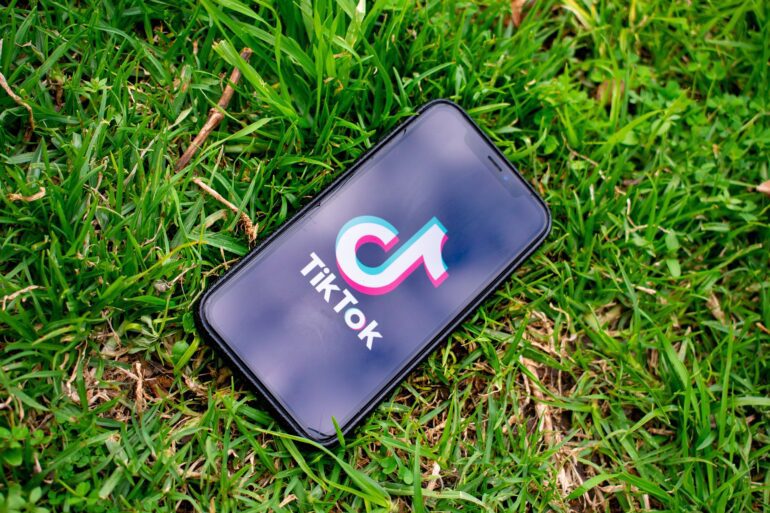TL;DR:
- TikTok is testing its own AI chatbot called “Tako.”
- Tako appears on the right-hand side of the TikTok interface.
- Users can ask Tako questions or seek content recommendations.
- The bot is currently being tested in select markets.
- TikTok aims to create a safe and innovative user experience.
- Tako’s development involves a customized third-party AI provider.
- Users are advised that Tako is still experimental and its feedback may not always be accurate.
- Conversations with Tako are subject to review for safety and enhancement purposes.
- User privacy concerns arise as chat logs are not automatically deleted.
- TikTok allows users to manually delete their Tako chats.
- Companies have banned AI chatbots at work due to security risks.
- TikTok sees Tako as a potential way to surface content and compete with Google.
- The chatbot’s public availability and long-term data retention policies remain unclear.
Main AI News:
In the ever-evolving world of AI chatbots, TikTok has joined the ranks by testing its own intelligent conversational agent, named “Tako.” Designed to add value to the TikTok community, Tako is currently undergoing limited testing in select markets. Positioned on the right-hand side of the TikTok interface, above the user’s profile and other interactive buttons, Tako is poised to revolutionize the way users engage with the platform.
Tako operates seamlessly within the TikTok environment, allowing users to interact with it by posing natural language queries or seeking recommendations for new content. For example, while watching a video of King Charles’ coronation, Tako might proactively suggest users ask, “What is the significance of King Charles III’s coronation?” This intelligent bot can also assist users in finding videos related to specific topics, such as humorous pet clips. Tako responds promptly by presenting a curated list of results, complete with video titles, authors, subjects, and clickable links to the recommended content.
The existence of this AI chatbot was initially brought to light by app intelligence firm Watchful.ai, which discovered Tako’s presence during public testing. TikTok has since confirmed the ongoing tests, emphasizing its commitment to staying at the forefront of innovation. A TikTok spokesperson stated, “Being at the forefront of innovation is core to building the TikTok experience, and we’re always exploring new technologies that add value to our community.” The social media giant views this endeavor as an opportunity to create a safe space that entertains, inspires creativity, and drives culture while gathering invaluable insights from its community.
While Watchful.ai found evidence of Tako’s testing on iOS devices in the United States, TikTok clarified that the current version of the bot is not publicly available in the U.S. However, Tako is being thoroughly tested in various global markets, including an initial limited test in the Philippines. To power Tako’s capabilities, TikTok has partnered with an undisclosed third-party AI provider, customizing the solution to meet its specific requirements. Notably, the development of Tako does not involve any in-house AI technologies from TikTok or its parent company, ByteDance.
Upon launching Tako, TikTok prompts users with a pop-up message cautioning that the bot is still in an “experimental” phase and its feedback may not always be accurate or true. This disclaimer aligns with industry standards for AI chatbots, including notable examples like OpenAI’s ChatGPT and Google’s AI. TikTok further emphasizes that Tako should not be relied upon for medical, legal, or financial advice. Ensuring user safety, all conversations with Tako are subject to review, aiming to enhance user experiences. The implementation of this review process, however, raises concerns about user privacy, as AI chatbot conversations are not automatically deleted after concluding, potentially exposing users to privacy risks.
Addressing the privacy concerns surrounding AI chatbots, some companies have allowed users to manually delete their chat logs. Snap’s My AI chatbot companion in the Snapchat app offers this feature as a solution. TikTok follows a similar path by empowering users to delete their Tako chats. The extent to which Tako logs data tied to users’ personal information or implements long-term data retention policies remains uncertain.
The security risks associated with AI chatbots have prompted several companies, such as Apple, Bank of America, Citi, Deutsche Bank, Goldman Sachs, Wells Fargo, JPMorgan, Walmart, Samsung, and Verizon, to ban their usage in the workplace. Concerns primarily revolve around the potential leakage of confidential data. Nevertheless, TikTok believes that AI chatbots, like Tako, offer more than just question-and-answer capabilities. They envision these intelligent agents as a means to enhance content discovery within the app, surpassing traditional search box interactions.
If TikTok’s tests prove successful and the chatbot sees a public rollout, it could potentially pose a threat to Google. The search giant has already observed that Generation Z users are increasingly turning to TikTok and Instagram as their primary search destinations for specific subjects. Although Google plans to introduce a conversational search experience soon, TikTok’s in-app AI chatbot could entice younger users to bypass Google altogether.
Conlcusion:
The introduction of TikTok’s AI chatbot, Tako, holds significant implications for the market. By incorporating this innovative feature, TikTok aims to enhance the user experience and stay at the forefront of technological advancements. Tako’s ability to provide personalized content recommendations and facilitate natural language queries could potentially disrupt the traditional search landscape. If successful, TikTok’s in-app chatbot may challenge established players like Google, particularly among younger demographics. As the market evolves, businesses should closely monitor these developments and consider the potential impact on their marketing strategies and customer engagement approaches.

